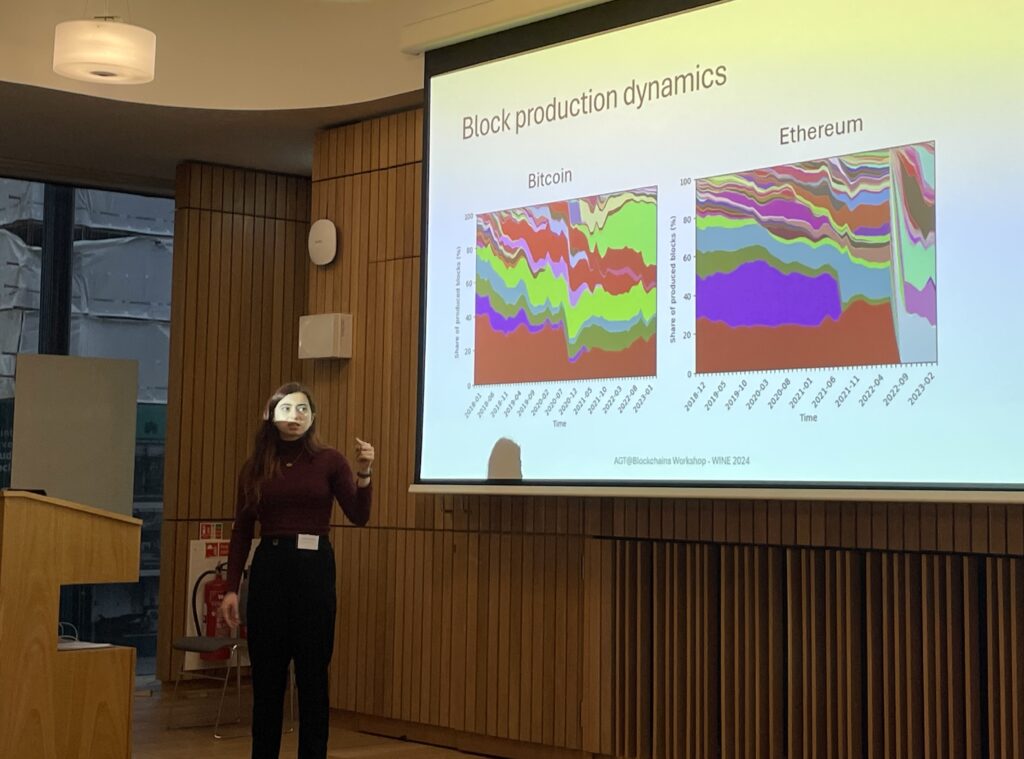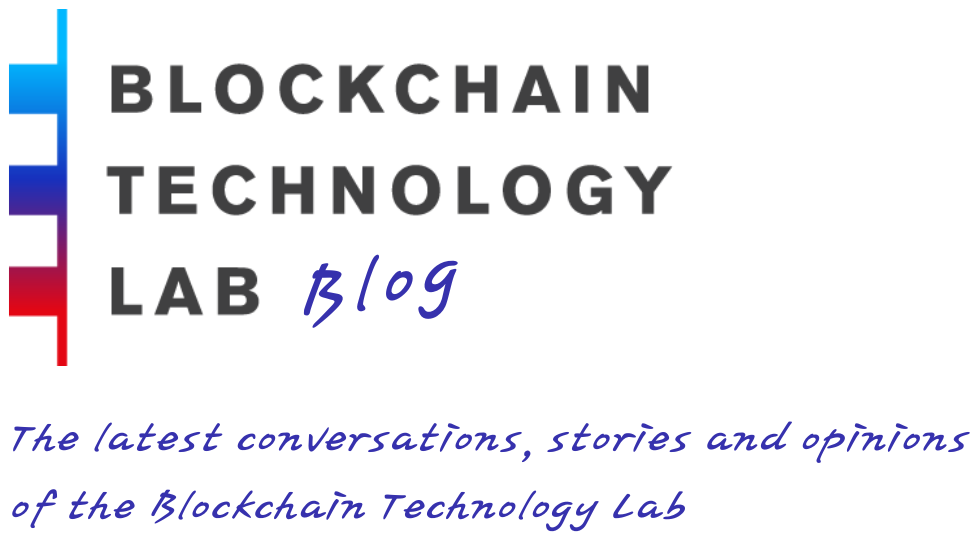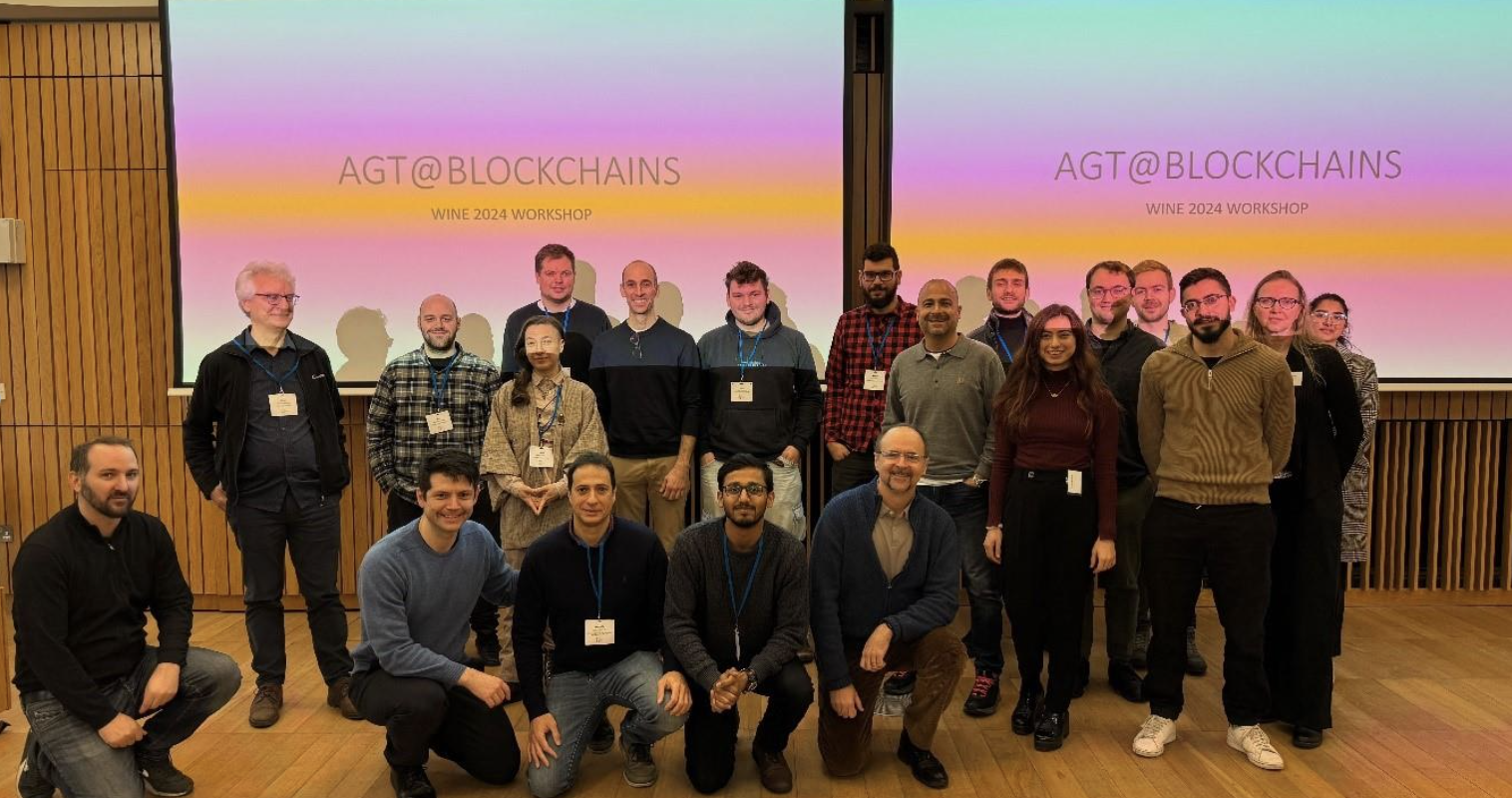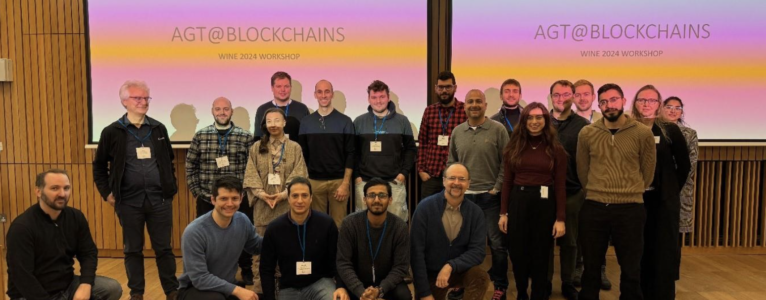The Edinburgh Decentralisation Index (EDI) initiative continues to gain momentum. On September 17th, 2024, the EDI team held an in-person workshop hosted by the Scottish Government, bringing together representatives from the Bank of England, the Blockchain & Digital Trust Taskforce, and the British Blockchain Association. The session featured a presentation of the latest EDI results and dashboard developments, followed by a roundtable focused on the urgent need for a standardised framework to assess decentralisation across blockchain systems.
EDI’s growing relevance in both academic and applied research contexts was also highlighted at the AGT@Blockchains Workshop held during WINE 2024. The purpose of this one-day event was to bring together researchers in algorithmic game theory and distributed algorithms to investigate game-theoretic problems in the field of blockchain protocols and distributed ledgers. A presentation of the EDI framework helped to bridge theoretical models with practical measurements of decentralisation, reinforcing its utility in multidisciplinary dialogue.

Building on these engagements, the Blockchain Technology Laboratory (BTL) and Input-Output Research (IOR) hosted a follow-up webinar on May 9th, 2025, titled “EDI – A Toolbox for Regulators and Users to Measure Blockchain Decentralization.” The online event attracted over 100 participants, including regulators, academic researchers, and blockchain professionals, all eager to explore EDI’s growing role in improving transparency and regulatory oversight.
Held under Chatham House Rules, the webinar opened with a comprehensive introduction to how EDI defines and measures decentralisation through curated datasets, robust metrics, and an interactive dashboard. The presentation, given by Christina Ovezik, emphasised real-world implications, from distinguishing between centralised and decentralised systems to how decentralisation factors into legal classifications of digital assets. It also addressed EDI’s relevance in high-profile regulatory contexts, such as the SEC vs. Ripple Labs case and the proposed U.S. legislation known as FIT21.
A panel discussion titled “Using Decentralization as a Regulatory Tool” followed, featuring Shawn Bayern, Larry and Joyce Beltz Professor of Torts and Associate Dean for Technology at Florida State University; David Fox, Chair of Common Law at The University of Edinburgh; and Connor Spelliscy, Co-Founder and Executive Director of the Decentralization Research Center. The session explored how decentralisation metrics can clarify definitions of digital property, support consumer protection, and inform emerging policy frameworks. Panellists examined complex issues such as the legal treatment of “leaky assets” whose fundamental qualities may shift over time and the need to balance privacy with the transparency required for effective regulation.
The webinar concluded with a forward-looking discussion of future plans by the EDI spin-out. These include extending EDI’s metrics to assess concentration risks in software supply chains and third-party dependencies, with the aim of supporting stronger due diligence and resilience in digital systems.
Together, these recent engagements across government, academia, and technical research communities mark an important step forward for the EDI initiative. They illustrate how robust, data-driven decentralisation metrics can inform regulation, support innovation, and contribute to a more transparent and trustworthy digital ecosystem.




